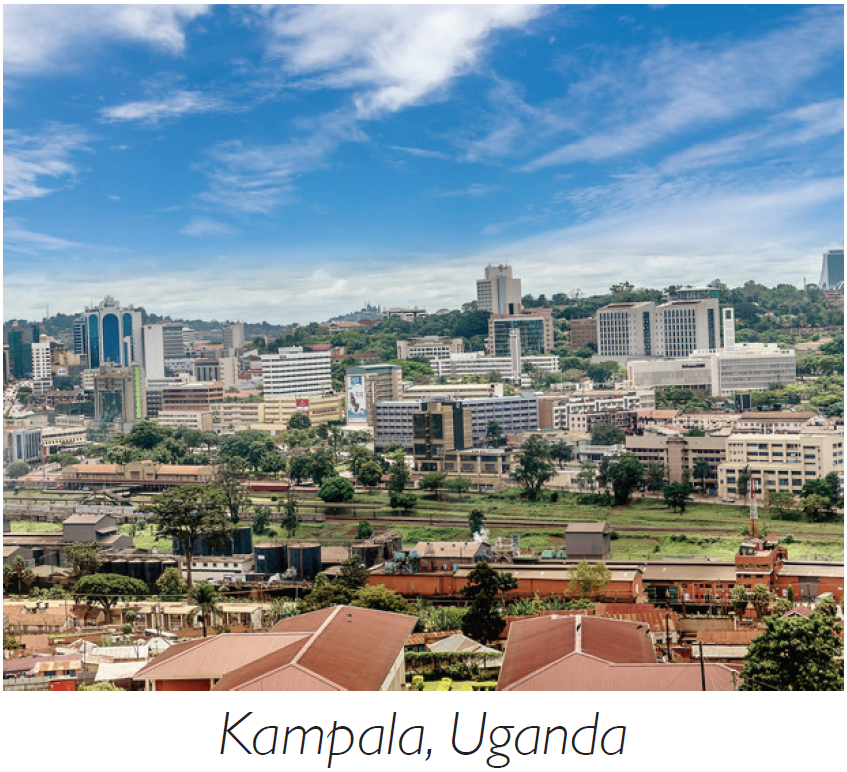Borrower Overview
TriLinc has provided financing to a grain trading and processing company operating in Uganda whose vision is to feed East Africa sustainably through a regionally-integrated formal system for grain production and exchange that helps transform rural lives and creates stakeholder value. Established in 2012, the company sources, processes, and stores maize before selling to off-takers, such as the World Food Programme, across Uganda, Kenya, and Rwanda. The company’s off-takers use the maize to produce products, including nutrient-enriched, therapeutic food, to meet the nutritional demand of the region’s growing population. To-date in 2017, the company’s produce has provided a years’ worth of low-cost, high-value food for over 600,000 refugees in East Africa. Additionally, the company sources 80% of its maize from smallholder farmers through one of the company’s holdings, which maintains support centers in western and southern Uganda. These support centers drive tremendous social impact for disadvantaged Ugandan communities by offering farmers a location to sell their maize through a reliable process at fair pricing, as well as helping to provide them access to competitively priced and certified agricultural inputs, knowledge, demonstrations, extension services, and loans for working capital. To date, these centers have provided over 45,000 farmers with agricultural finance, markets and/or inputs.
Market Overview

Uganda is classified as a low income country by the World Bank.1 Between 2010 and 2016, GDP growth rates averaged approximately 5.3%.1 The country’s economy is primarily service- and agriculture-based, with the agriculture industry employing one third of the workforce.2 Like the rest of East Africa, maize is a staple food crop in Uganda, and over 90% of it is produced by smallholder farmers.3 Uganda’s main exports are concentrated in coffee, fish and fish products, tea, cotton, flowers, horticultural products, and gold.2 Conversely, the country’s main imports are focused in capital equipment, vehicles, petroleum, medical supplies, and cereals.2
Uganda meets TriLinc’s country standards for its performance across relevant growth, stability, and access metrics.4 As the eleventh largest economy in Sub-Saharan Africa with a GDP of $25.5 billion, the country benefitted from an estimated $44.4 billion in net foreign direct investment that flowed into the Sub-Saharan region in 2015.5 Sub-Saharan Africa had regional GDP growth of 1.3% in 2016, and is projected to strengthen to 3.5% by 2019.6
Additional Sustainability & Impact Highlights
- The company’s staff, local farmers, village agents, and external organizations are trained on agronomic topics including land management and preparation, seed selection and responsible herbicide/fertilizer use, post-harvest handling and storage, Good Agricultural Practices standards, grain quality analysis and management, farm business planning, and marketing procedures.
- The financial services available to farmers include loans for in-kind products, such as agricultural inputs, in addition to loans for working capital. Loans are offered through a local bank partnership. The local bank utilizes the company’s ability to track the smallholder farmer’s output performance over several seasons to determine the farmer’s ability to repay their loan, allowing the bank to offer services to farmers at a much lower rate than commercially available.
- The company was approved by the National Environment Management Authority for its completed environmental impact assessment, ensuring compliance with national environmental and social standards around waste management, occupational health and safety, and community concerns.
1The World Bank, World Development Indicators Database, Uganda, 2017. 2CIA, The World Factbook, 2017: Uganda. 3Yield Gap: Uganda. 4There is no assurance that our investment in this company or this market will be successful. 5World Bank, Data, Sub-Saharan Africa, 2016. 6The World Bank, Global Economic Prospects, June 2017.
The above information is as of the initial date of investment: June 27, 2017.
An investment with TriLinc carries significant fees and charges that will have an impact on investment returns. Information regarding the terms of the investment is available by contacting TriLinc. This is a speculative security and, as such, involves a high degree of risk. Investments are not bank guaranteed, not FDIC insured and may lose value or total value. Some investments may have been made in an investment vehicle that is no longer open for investment. The highlighted investment may or may not have been profitable. There is no guarantee that future investments will be similar.
Want to learn more? Contact Us.
